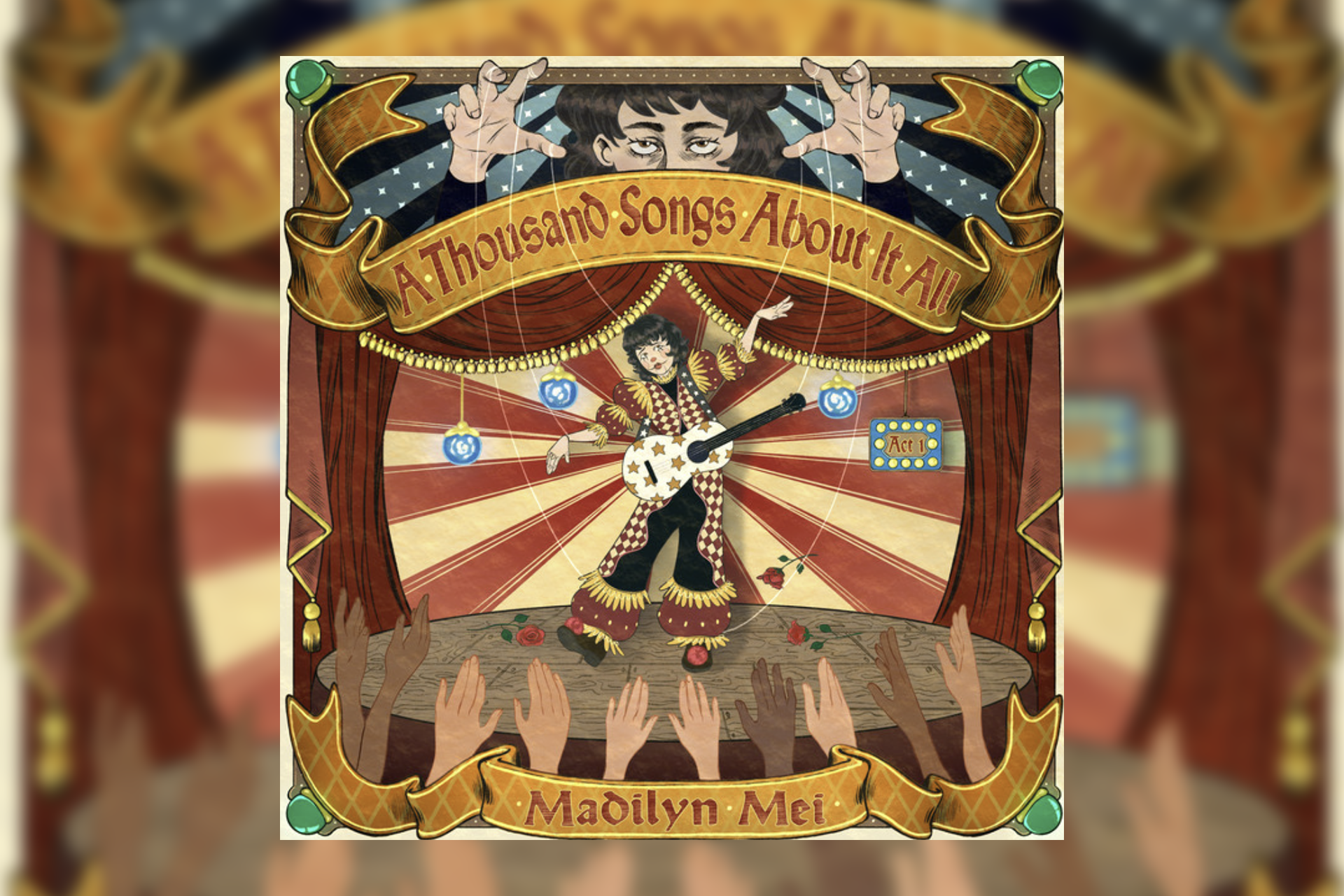What’s the difference between an indie pop singer and a circus performer? According to Madilyn Mei’s new album, there isn’t one.
“Ladies and gentlefolk, gays and theys,” welcome to the show.
A Thousand Songs About It All: Act 1, which released on Friday, from Madilyn Mei, also known as Elio, follows the story of an entertainer who struggles with the pressures of keeping up the act, afraid of “burning out” but perhaps even more afraid of stopping the show.
Mei maintains the circus motif throughout, beginning every track by announcing the next “performer.” Mei also addresses other personal issues within the 12 tracks, including isolation, homophobia and the painful end of childhood.
The album showcases Mei’s experimental singing and composing style, full of expressiveness and, at times, dissonance.
But that quality doesn’t diminish from the album’s artistry.
Mei’s willingness to unconventionally express their lyrics sets them apart from other indie singer-songwriters, helping accentuate the stories they tell.
[Ed Sheeran’s ‘Play’ is heartfelt, but inconsistent]
Their style evokes whimsy and mayhem you haven’t experienced since your third-grade substitute teacher accidentally left the classroom unattended, and you started building forts with your chairs.
“What’s Going On?!” perhaps best exemplifies the album’s occasional eccentricity. The track begins with a buzzing sound, emulating alien spaceship technology. Mei enters with a warbling sing-songy tone, expressing their lyrics in a quirky manner. To quote Sondheim, “There’s not a tune you can hum.” Mei masterfully juggles aesthetics, switching to classical piano and harmonizing vocals later in the song.
Mei is known for crafting intricate stories through their work, and this album is no exception.
A Thousand Songs, though, is much more personal to Mei’s own experiences than previous efforts.
In the opening track, “My Only Sense of Purpose,” Mei repeats, “No you can’t change your name / You’re our brightest flame.” They introduce tension here surrounding the performer’s name and the pressures they face to keep it the same.
Later on, in the fittingly titled “My Name,” Mei accentuates this tension.
“I am a soul / I’m not a body or name,” Mei sings. “But Elio / Would be my choice if I could change.”
[‘Maryland Night Live’ blends local humor with the chronically online in 15th season]
Here, they confirm the hints from the opening track — they feel pressured (perhaps by producers or fans) to keep their public name Madilyn, while desiring to be Elio. Mei’s social media profiles exemplify this dissonance, as they place their preferred name Elio in parentheses next to their legal name, Madilyn.
Artists like MegaGoneFree have expressed similar issues with their musician names in the public eye. Mega’s song “Talking ’Bout Bri” rejects their deadname and anyone who still uses it.
Mei’s album does not contain hostility toward their deadname but rather sadness they are prevented from living how they would like.
Mei has a beautiful singing voice, but they often use a muffled effect to gain an ethereal quality to their music. These slower, quieter segments, reminiscent of Billie Eilish, are harder to understand. The best songs on the album use this effect sparingly.
“Speaking of the Devil” slaps you in the face with whimsy and depressing realism. Over an upbeat ukulele, Mei wishes they could time-travel to break a familial cycle of bigotry rooted in their grandparents. Perhaps, if exposed to the right influences, Mei’s grandfather would’ve grown up to love and accept RuPaul. Maybe Elio, too.
Mei’s deceptively cheerful tone speaks to the all-too-common issues queer people have with older generations. Standing at less than two minutes, this poignant song ends entirely too soon.
This album is only the first part of Mei’s new, personal storyline. It will be exciting to see what happens to our performer after “Intermission” and how Mei’s emotions are depicted in Act 2.



